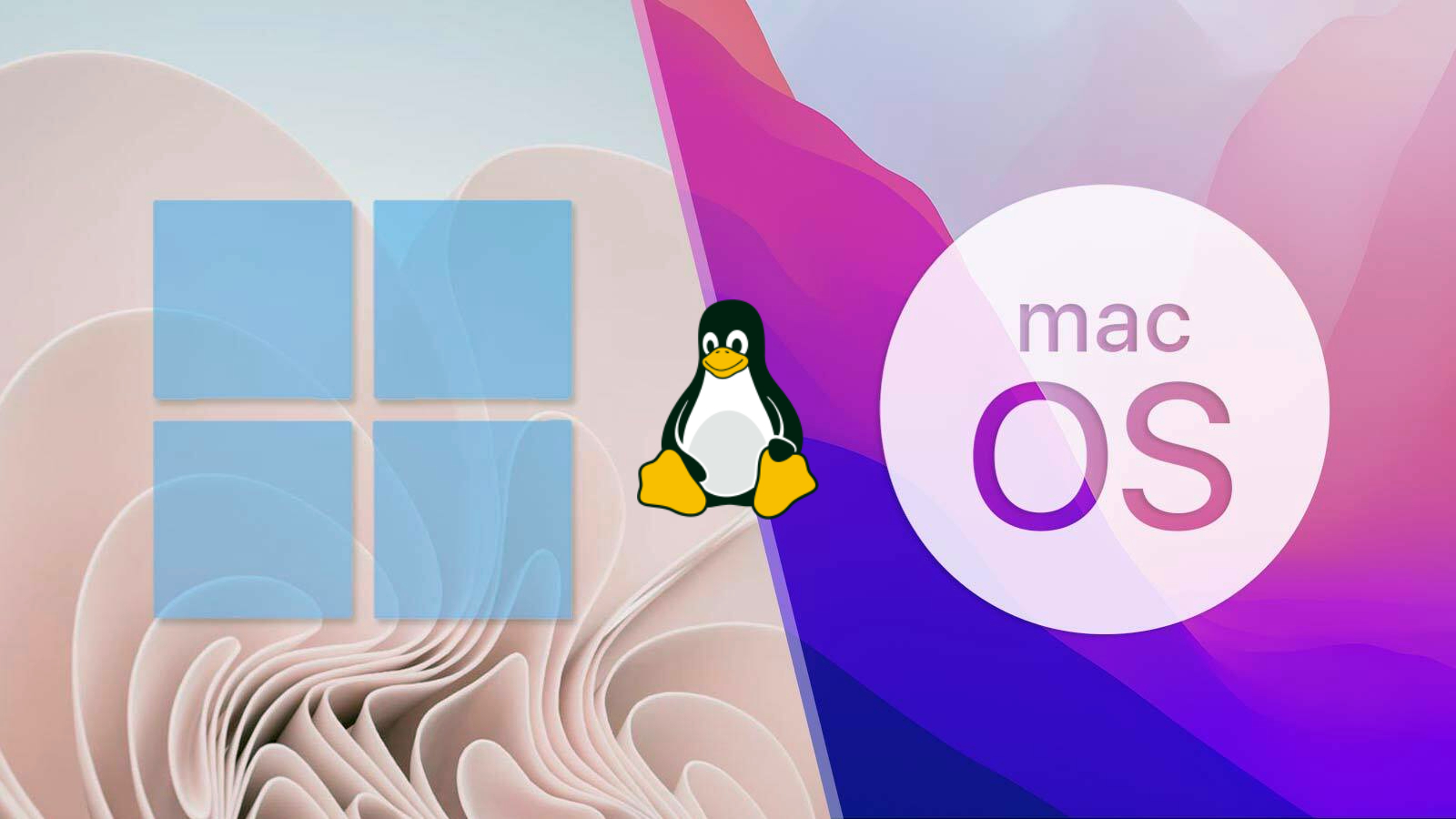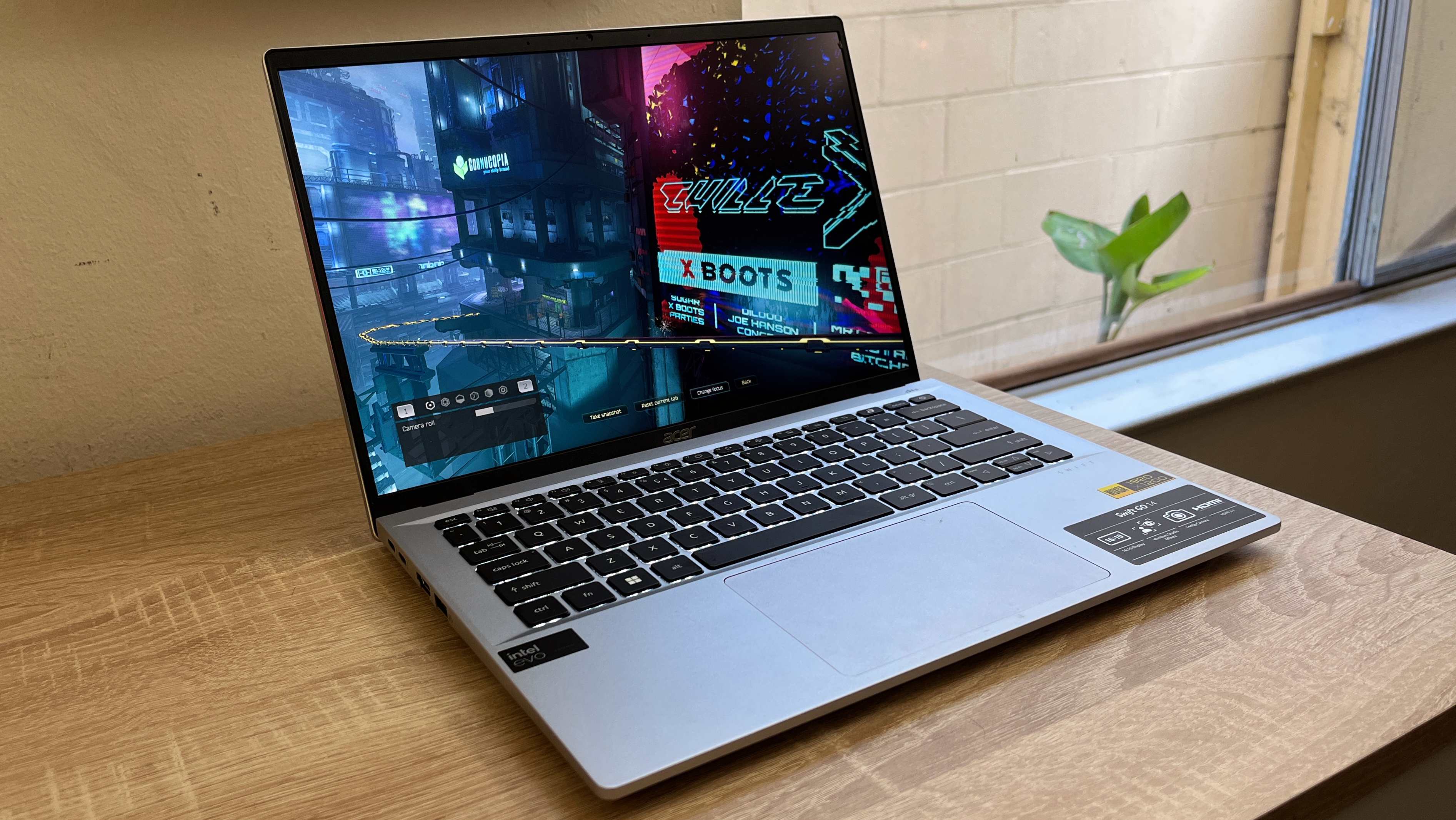Windows 11 vs macOS in 2024 will be a mess, so I'm learning Linux
2024 is the year I finally learn Linux, I swear

2023 is nearly over, and as the end draws near I'm hopeful you get a chance to rest, reminisce and recover from the year.
We're wrapping things up here at Tom's Guide to take a quick break before we get ready for CES 2024, and that entails a fair bit of looking ahead. I've been thinking a lot about our experience watching Windows 11 evolve even as macOS Sonoma arrived this September with some welcome (if underwhelming) upgrades, and I think I've come to a revelation.
It's time to learn Linux.
Before you close this tab mid-chuckle, let me have a few minutes of your time to work through why 2024 is the year I'm committed to learning Linux. Even if it's just the fundamentals, I think getting to grips with this open-source software suite is just the thing to gird me against the experience of opening the door to 2024 and being bombarded by ads for "AI PCs" like a man entering a wind tunnel face-first.
If you're a superuser already familiar with the strengths and weaknesses of Linus Torvalds' enduring creation, you can skip this end-of-year article. But if you're curious, stick around—I swear 2024 is the year my long-running Linux interest blossoms into a full-blown hobby.
And if I can do it, maybe you can too.
Why now's a great time to learn Linux
I think a lot of people are going to be spending the next few years fuming about how briefly/how long Microsoft waited (depending on your POV) between launching Windows 12 vs Windows 11 in 2021.
With the current version of Windows guaranteed to be supported through 2025 it seems unlikely we'll see a new version as soon as next year, but it's definitely possible Microsoft might rush Windows 12 out the door as soon as 2024 in order to take advantage of the "AI PC" hype cycle that's already started.
That's because Microsoft and its developer partners are all burning the midnight oil to build as many "AI" features into software as possible, in order to take advantage of the fact that AI laptops are on sale now packing the latest Intel Meteor Lake chips. These chips have a built-in NPU (Neural Processing Unit) that's very similar to the Neural Engine built into the Apple silicon (like the Apple M3 chip) which powers the best MacBooks, and developers are going to spend the next few years designing and hyping "AI" experiences which tap the power of these new NPUs.
And hey, that's going to be great in the long run. Intel's finally catching up to AMD and Apple by building NPUs into its chips, and they'll make Windows and Mac PCs more efficient at getting work done. But it's also going to lead to a glut of "AI" features rolling out across PC hardware and software over the next few years, and the defining characteristic of that stuff is that it takes control away from you.
Don't get me wrong, it does so in ways that are meant to make your life easier. We know because we've already spent some time with the first Meteor Lake laptops, including my Acer Swift Go 14 hands-on, and a lot of the early features that tap the power of these new AI-minded chips do useful things like generate art and text for you, answer questions, find Windows 11 system settings, and summarize documents.

All of that is helpful, but I can already see how it leads me down a path of understanding my PC less and less. I already barely understand how to find the right settings in Windows, because there's so much cruft layered into the operating system that I often scratch just beneath the shiny new Windows 11 exterior and find a dusty pile of old Windows diagnostic menus that look straight out of Windows Vista. How much less will I understand when I'm using Windows Copilot to control Windows system settings for me, rather than just tweaking things myself?
And while macOS Sonoma hasn't worked in nearly as many AI widgets and gewgaws as Windows 11, I think that will change sooner than you think. Apple has taken a cautious "wait and see" approach with the various LLM-trained (large language model) technologies we've seen in 2023, and as we move through 2024 I think you'll hear a lot more about AI in Apple PCs.
Which is all the more reason to start getting to grips with Linux today. Understanding it will help me better understand both Linux and UNIX, which underpin both macOS and Windows. More importantly, it'll help me get more done at work and at home.
I've always envied folks who are Linux-savvy because they have such an easy time doing things like moving files around a home network, or quickly moving batches of files between PCs with nothing more than a few lines of text. I have to do loads of mousing around pointing and clicking to accomplish the same things, which is murder on my wrists and my ego.
There's so much to learn that I think there must be no one best way to start, but I'm going to dip my toes in by working through some free courses at The Linux Foundation starting January 1, 2024. If you plan to take the same trip or have completed a similar journey recently, leave a comment all about it—it'll help me stay motivated once January 2nd rolls around!
More from Tom's Guide
Sign up to get the BEST of Tom's Guide direct to your inbox.
Get instant access to breaking news, the hottest reviews, great deals and helpful tips.

Alex Wawro is a lifelong tech and games enthusiast with more than a decade of experience covering both for outlets like Game Developer, Black Hat, and PC World magazine. A lifelong PC builder, he currently serves as a senior editor at Tom's Guide covering all things computing, from laptops and desktops to keyboards and mice.
-
rklrkl64 Assuming Alex uses Windows 10 or 11 as a daily driver, then WSL 2 is an obvious first step. You can pick a distro from the Windows Store (newbies might be advised to go for Ubuntu simply for popularity reasons) and there's even support now to run graphical Linux programs while staying in the Windows desktop.Reply
If you're after the full Linux graphical desktop experience, then maybe Virtualbox running a Linux VM would be your next step. If you really want to get your hands dirty, dual booting Linux and Windows on bare metal can be an option (I'm assuming Alex wouldn't be in a place to give up Windows entirely at this point).
Be warned that you should put Linux on a separate physical drive from Windows in a dual boot setup. If they share the same drive, Windows will wipe the Linux bootloader (usually Grub) when Windows updates (which is outrageous, but that's Microsoft for you), meaning the machine will revert to exclusively booting to Windows only again. This is fixable, but involves booting into a live Linux distro and re-installing Grub, which is beyond most newbies' skill level.
If you're looking to take the final leap and remove Windows completely, then you're going to have to make sure Linux can run all the app/games you consider "essential". There's bound to be some of those that are Windows-only and don't run acceptably or at all on Linux, even using translation layers like WINE/Proton. You might be able to find close cross-platform alternatives (think Firefox, Thunderbird, LibreOffice, GIMP, VLC, Audacity, OBS etc.) that you can run on both Windows and Linux for a while to get used to them before dumping Windows.
As for me, I was dual booting for many years, with Linux being my primary desktop and Windows booted into exclusively to play games. With Steam's Proton, Lutris, Heroic Games Launcher and the fact I don't play multi-player games, almost every single game I have works in Linux now. When I got a new PC in Dec 2022, I only installed Linux on it and also wiped Windows off my old PC, so I finished the journey a year ago that Alex is just starting. It's great my entire house is now Windows-free and, yes, I've got a Steam Deck with SteamOS on it of course. Windows, to me, was only good for gaming and Linux has mostly caught up in that area, which used to be its only weakness. -
DasGlow I am with you on that journey. After years of using Windows I finally found the guts to wipe it from my laptop and installed Linux Mint instead. I made sure that everything that counts for me is working with Linux,too. So, there should be no downside for me. Let's make 2024 the year were we learn Linux.Reply -
tmarsden Just to be clear Linux doesn’t underpin windows or macOS. Unix, or rather a BSD variant, does underpin macOS.Reply
Learning Linux is good to give you a new perspective on things but I wouldn’t hold my breath hoping it will magically make you more productive. It might actually be counterproductive if you account for common Linux behaviors like distro hopping or tweaking.
You cite how moving files around is easy on Linux with some simple commands, which it is, but using the robocopy command on windows you can do the same thing. My point is don’t expect Linux to be some magic bullet. It comes with its own cons just like the others and you’ll have to try it out to see if you can live with them. Don’t wipe your windows install just yet. Learn Linux in a VM or dual boot configuration. Good luck! -
delusionn I will never understand the idea of choosing your OS as a lifestyle brand decision rather than choosing your OS based on which apps you want to run or what your work and entertainment requirements demand.Reply -
qrp What I like best about Linux is the ability to reload it. It seems that several times a year I run my laptop into the ground because I cannot resist fiddling with the controls and I make a mess of it. Rather than trying a multitude of ways to repair it I can restore my OS in about 15 minutes and maybe another 30 minutes to fine-tune it. Try that with windows (I have tried it!)Reply -
USAFRet Reply
A reasonable backup plan will do exactly the same, or better, in Windows.qrp said:What I like best about Linux is the ability to reload it. It seems that several times a year I run my laptop into the ground because I cannot resist fiddling with the controls and I make a mess of it. Rather than trying a multitude of ways to repair it I can restore my OS in about 15 minutes and maybe another 30 minutes to fine-tune it. Try that with windows (I have tried it!)
A few weeks ago, a really crappy software package dropped all sorts of malware on my system, even after being told not to.
30 minute recovery from the previous nights full drive backup....all done.
Exactly as it was, no follow on 'fine tuning'.
YMMV. -
artisticcheese Reply
WSL2 can run GUI applications in Windows as wellrklrkl64 said:Assuming Alex uses Windows 10 or 11 as a daily driver, then WSL 2 is an obvious first step. You can pick a distro from the Windows Store (newbies might be advised to go for Ubuntu simply for popularity reasons) and there's even support now to run graphical Linux programs while staying in the Windows desktop.
If you're after the full Linux graphical desktop experience, then maybe Virtualbox running a Linux VM would be your next step. If you really want to get your hands dirty, dual booting Linux and Windows on bare metal can be an option (I'm assuming Alex wouldn't be in a place to give up Windows entirely at this point).
Be warned that you should put Linux on a separate physical drive from Windows in a dual boot setup. If they share the same drive, Windows will wipe the Linux bootloader (usually Grub) when Windows updates (which is outrageous, but that's Microsoft for you), meaning the machine will revert to exclusively booting to Windows only again. This is fixable, but involves booting into a live Linux distro and re-installing Grub, which is beyond most newbies' skill level.
If you're looking to take the final leap and remove Windows completely, then you're going to have to make sure Linux can run all the app/games you consider "essential". There's bound to be some of those that are Windows-only and don't run acceptably or at all on Linux, even using translation layers like WINE/Proton. You might be able to find close cross-platform alternatives (think Firefox, Thunderbird, LibreOffice, GIMP, VLC, Audacity, OBS etc.) that you can run on both Windows and Linux for a while to get used to them before dumping Windows.
As for me, I was dual booting for many years, with Linux being my primary desktop and Windows booted into exclusively to play games. With Steam's Proton, Lutris, Heroic Games Launcher and the fact I don't play multi-player games, almost every single game I have works in Linux now. When I got a new PC in Dec 2022, I only installed Linux on it and also wiped Windows off my old PC, so I finished the journey a year ago that Alex is just starting. It's great my entire house is now Windows-free and, yes, I've got a Steam Deck with SteamOS on it of course. Windows, to me, was only good for gaming and Linux has mostly caught up in that area, which used to be its only weakness.
